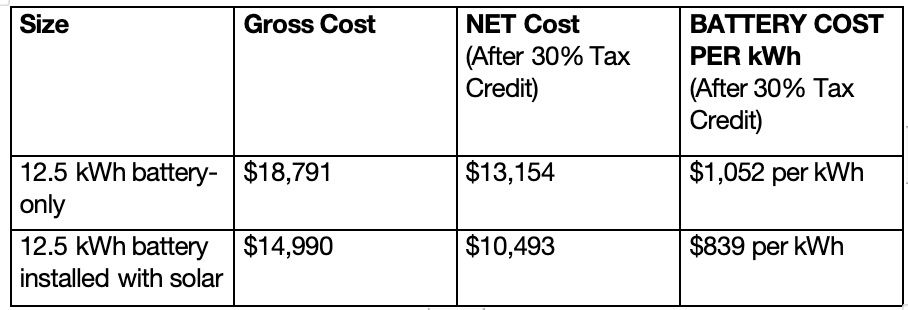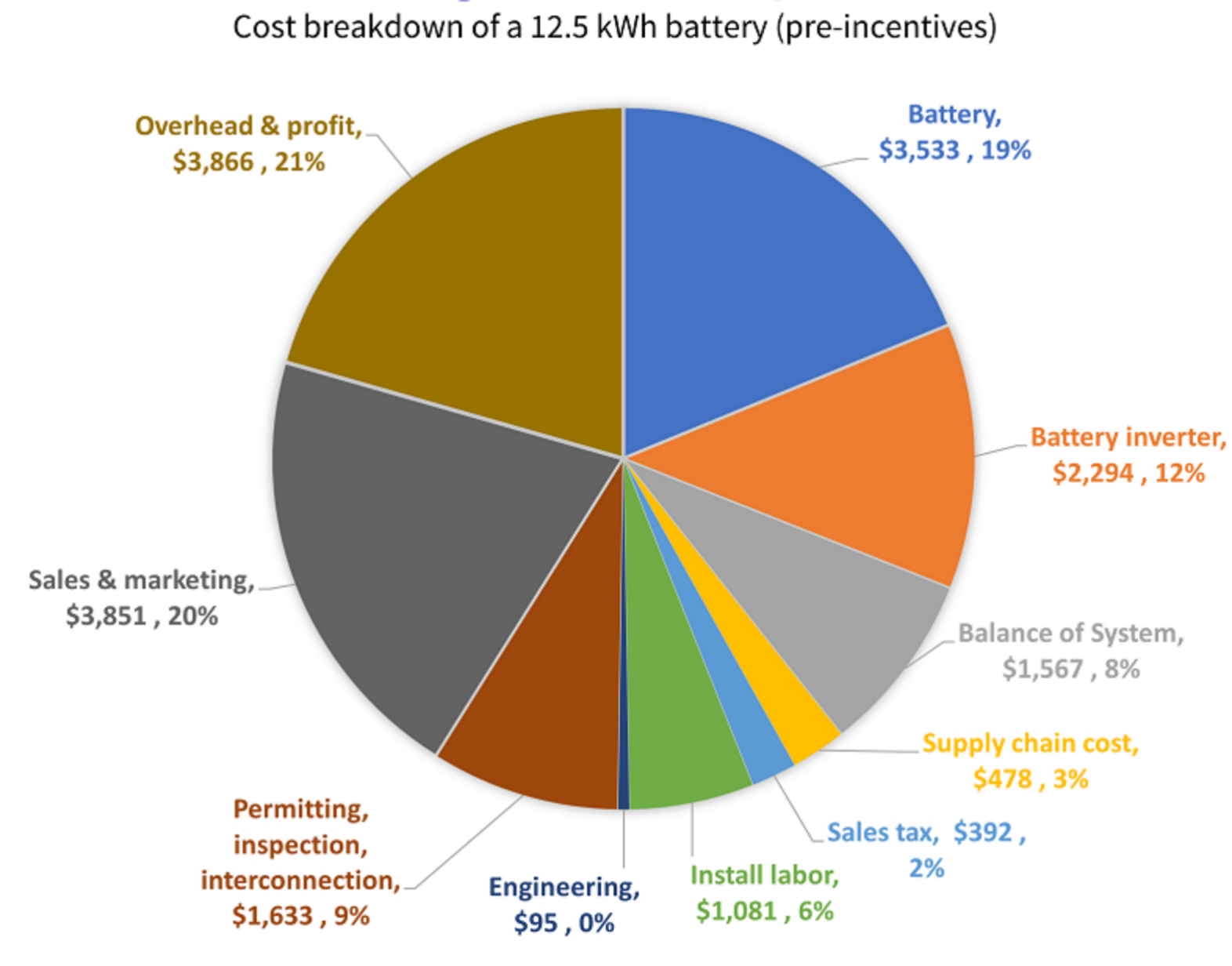
Home Battery System Cost–Here is What You Need to Know in 2024
Human survival instincts are probably stronger than any other species. With advanced technologies, we are not only surviving in our surrounding environment but are experiencing luxuries. The new problem that our species is facing is power outages, and the hurdle in solution is home battery system cost.
But we also know that it’s a new technology, and new technologies are expensive at first. In this article, we will navigate through the ins and outs of home battery system costs in 2024 and help you decide if it's worth the investment.
How Much Does a Home Battery System Cost in 2024?
We all know that the cost is not the same for all types of battery backup systems. Rather, it varies depending on the type, i.e., lead-acid batteries or lithium-ion batteries. Each type has its own pros and cons and has prices accordingly.
According to the latest update from the National Renewable Energy Laboratory (NREL), the average cost for an installed battery of 12.5 kWh (kilowatts-hour) is ~ $19000, which comes down to ~ $13160 after securing the 30% tax credit. If you install the battery and solar system, the price goes down to ~ $15000 (even less with the claimed tax credit).

Source: NREL 2022
According to this data, the cost is between $5000 to $19000 for fully installed batteries.
As we said earlier, the cost depends on the battery type. Still, it also depends on the basic equipment (battery, balance of system, inverter) and soft costs like taxes, supply chain costs, installation labour, permission/ inspection/ interconnection (PII), overhead makeup, and customer acquisition. The price for basic equipment is only 39%, while soft costs make up 61%.
Source 1: NREL 2022 (battery cost depends on battery size, installed system, model, and location)
Factors That Determine the Home Battery System Cost
The fact is beyond doubt that the home battery system cost will go down in the future as the technology becomes more sophisticated. Some factors influence the pricing of these systems which are beyond your control, such as:
- Permitting and Inspection
- Interconnection from your utility provider
- Installation labour and specialized engineering
- Marketing a new product
- Tax
But you still have control over certain factors that are the reason behind home battery system costs, and they are the following:
Battery Capacity
The first and biggest factor that influences the pricing is battery capacity. Battery capacity means how much energy it can store for you to use during a power outage. The bigger the capacity, the bigger the price tag. Normally, home batteries can store 10-20 kWh of electric energy. Batteries with larger capacity cost fewer kilowatt-hours of usable capacity, so a bigger one is likely to save you extra bills from time to time.
You can buy efficient batteries of your chosen size from Innotinum.
Balance of System (BOS) Equipment
Installing a battery is a tricky business, and the pieces of equipment required to enable the batteries to power your house influence the cost. One such thing is that BOS (Balance of System) is installed in your house. Its scope, complexity, and type can decrease or increase the cost.
Backup Gateway
A backup gateway is a small yet important piece of equipment that separates the home circuit from the electric grip during power outages. This switch helps the battery backup system to provide electric energy to the house without backfeeding the electric grid.
Critical Loads Panel/ Sub-Panel
We never know how long the power outages will last, so it’s wise to spend the battery energy on the most important devices rather than the ones available for decoration’s sake. Besides, most batteries can back circuits up to 30 amps.
This means that installing a battery also means installing a sub-panel known as a critical loads panel. So, when an outage occurs, the backup gateway switches the battery to power the sub-panel.
DC Batteries vs AC Batteries
DC batteries are less expensive and easy to configure. Their installation is also quite simple, but you can face problems when installing them to an already existing solar system.
On the other hand, it can be easily installed on any existing solar system. But these batteries are comparatively costly than DC batteries.
Battery Installment
The proper installation of a home battery system is as important as buying the right one. What good is the investment if it's not installed right and causes problems every now and then?
Hiring companies with experience would be the best course of action. The installation cost might be a bit expensive, but it's worth the investment if you are looking for a seamless and problem-free solution to these annoying power outages.
Financing
Given the expensive nature of home battery systems, the government allows you to finance them just like houses and cars. You can spread the total cost over a longer period.
But it also comes with a cost – the interest. For example, if a 12.5 kWh battery and a 7.9 kW solar system cost around $30,000, financing will cost you $47000 (in 20 years).
Are Home Battery Systems Worth the Cost?
After looking at every angle regarding the prices of home battery backup systems, it is totally up to you to decide whether it’s worth the investment. But one thing is for sure: you will be energy-independent, your energy bills will be low, and no storm or emergency outage will come between you and your comfort.
If your wallet is not allowing you to purchase a battery backup system right on, keep track of the prices because with passing time, the popularity and demand of these systems will be high, causing the prices to fall low. So, who knows, you are owning this independence in the near future.
People Also Ask
How much does a 5kW solar battery cost?
A 5kWh solar battery will likely cost $8,000 to $12,000 fully installed in 2024, with the Tesla Powerwall being the most affordable option. Incentives and installing it with a new solar system can help reduce the upfront cost.
What size battery is needed to run a house?
The size of the battery required to run a house depends entirely on
- The house's average daily energy consumption in kilowatt-hours
- The number of members in a house
- The usable capacity of the battery
- Whether the battery is being used for power shifting, backup power, or both
However, a general estimation for a typical house in 2024 is 10.5 – 31 kWh lithium battery for 1-5 members in a house.

